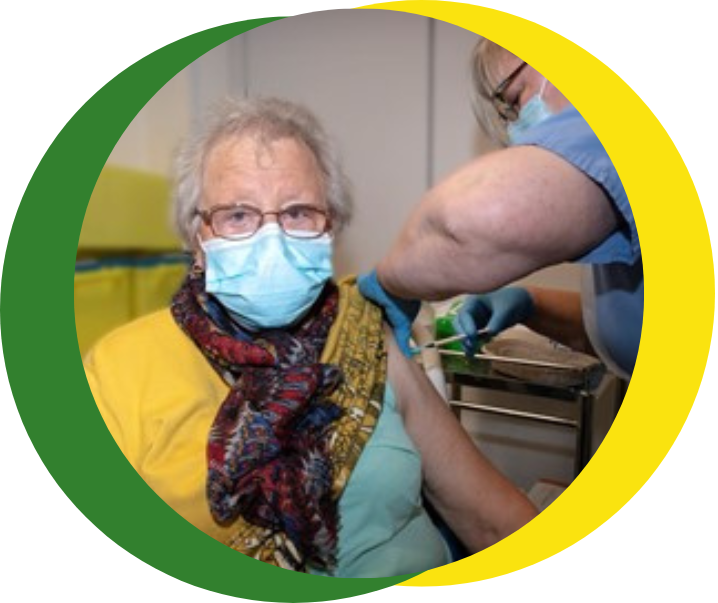Flu

Flu occurs every year, usually in the winter, which is why it’s sometimes called seasonal flu. It is caused by influenza viruses that infect the windpipe and lungs, and because it’s caused by viruses and not bacteria, antibiotics won’t treat it.
The best protection against flu is the flu vaccine. It is safe and effective and it’s offered every year on the NHS to help protect people at risk of flu and its complications.
The best time to have the flu vaccine is in the autumn before flu starts spreading.
Who can have the flu vaccine?
The flu vaccine is given free on the NHS to adults who:
- are aged 65 or over
- are at risk
- are pregnant
- live in a care home
- are the main carer for an older or disabled person, or receive a carer’s allowance
- are immunosuppressed
- a frontline health and social care worker
The nasal spray flu vaccine is free on the NHS for:
- children aged 2 or 3 years
- all primary school children (reception to year 6)
- all year 7 to year 11 children in secondary school
- children aged 2 to 17 years with long-term health conditions
Where to get the flu vaccine?
You can have the NHS flu vaccine at:
- your GP surgery
- a pharmacy offering the service
- some maternity services if you’re pregnant
- Special children’s flu clinics
- Sometimes, you might be offered the flu vaccine at a hospital appointment.
If you have a flu vaccine at any NHS service except your GP surgery, you do not have to tell the surgery to update your records. This will be done for you. If you’ve been given a flu vaccine privately, or through an occupational health scheme, you can tell your GP surgery if you would like it added to your NHS record.
Flu vaccine clinics for children in Nottingham and Nottinghamshire
There are a number of free flu clinics running throughout the October 2025 half term for children who are attending primary and secondary schools or electively home educated. The dates of the clinics are listed on the Nottinghamshire County Council website.
Flu vaccine if you’re pregnant
You should have the flu vaccine if you’re pregnant to help protect you and your baby. It’s safe to have a flu vaccine at any stage of pregnancy. Find out more about flu vaccine in pregnancy
How do you catch flu?
When an infected person coughs or sneezes, they spread the flu virus in tiny droplets of saliva over a wide area. These droplets can then be breathed in by other people or they can be picked up by touching surfaces where the droplets have landed.
You can prevent the spread of the virus by covering your mouth and nose when you cough or sneeze, and you can wash your hands frequently or use hand gels to reduce the risk of picking up the virus.
But the best way to avoid catching and spreading flu is by having the vaccination before the flu season starts.
Flu symptoms:
Flu symptoms come on very quickly and can include:
- a sudden high temperature of 38C or above
- an aching body
- feeling tired or exhausted
- a dry cough
- a sore throat
- a headache
- difficulty sleeping
- loss of appetite
- diarrhoea or tummy pain
- feeling sick and being sick
The symptoms are similar for children, but they can also get pain in their ear and appear less active.
How effective is the flu vaccine?
- The flu vaccine gives the best protection against flu
- Flu vaccines help protect against the main types of flu viruses, although there’s still a chance you might get flu
- If you do get flu after vaccination, it’s likely to be milder and not last as long
- Having the flu vaccine will also stop you spreading flu to other people who may be more at risk of serious problems from flu
- It can take 10 to 14 days for the flu vaccine to work
For more information, visit the NHS website.
More information and other formats
- GOV.UK: flu vaccination: who should have it this winter and why (including how to request an accessible version)
- GOV.UK: flu vaccination easy read guides

